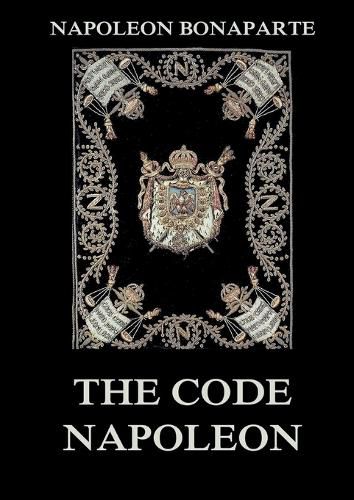Readings Newsletter
Become a Readings Member to make your shopping experience even easier.
Sign in or sign up for free!
You’re not far away from qualifying for FREE standard shipping within Australia
You’ve qualified for FREE standard shipping within Australia
The cart is loading…






This title is printed to order. This book may have been self-published. If so, we cannot guarantee the quality of the content. In the main most books will have gone through the editing process however some may not. We therefore suggest that you be aware of this before ordering this book. If in doubt check either the author or publisher’s details as we are unable to accept any returns unless they are faulty. Please contact us if you have any questions.
Including a detailed historical annotation on the formation of the Code Napoleon. *** Code Napoleon, the first code of the French civil law, known at first as the Code civil des Francais, was promulgated in its entirety by a law of the 30th Ventose in the year XII. (31st of March 1804). The influence of the Code Civil has been very great, not only in France but also abroad. Belgium has preserved it, and the Rhine provinces only ceased to be subject to it on the promulgation of the civil code of the German empire. Its ascendancy has been due chiefly to the clearness of its provisions, and to the spirit of equity and equality which inspires them. Numerous more recent codes have also taken it as a model: the Dutch code, the Italian, and the code of Portugal; and, more remotely, the Spanish code, and those of the Central and South American republics. *** This landmark series presents a curated collection of the greatest non-fiction works ever written-spanning philosophy, history, theology, science, political theory, economics, and beyond. From the ancient musings of Plato and Confucius to the revolutionary ideas of Darwin and Marx, Foundations of Thought gathers the essential texts that have shaped civilizations and challenged the boundaries of human understanding. Whether exploring the nature of justice, the origins of the cosmos, or the foundations of faith, this series serves as both a gateway to intellectual heritage and a living dialogue with the past. Ideal for students, thinkers, and seekers of wisdom, Foundations of Thought invites readers to engage deeply with the enduring ideas that continue to influence the world today.
$9.00 standard shipping within Australia
FREE standard shipping within Australia for orders over $100.00
Express & International shipping calculated at checkout
This title is printed to order. This book may have been self-published. If so, we cannot guarantee the quality of the content. In the main most books will have gone through the editing process however some may not. We therefore suggest that you be aware of this before ordering this book. If in doubt check either the author or publisher’s details as we are unable to accept any returns unless they are faulty. Please contact us if you have any questions.
Including a detailed historical annotation on the formation of the Code Napoleon. *** Code Napoleon, the first code of the French civil law, known at first as the Code civil des Francais, was promulgated in its entirety by a law of the 30th Ventose in the year XII. (31st of March 1804). The influence of the Code Civil has been very great, not only in France but also abroad. Belgium has preserved it, and the Rhine provinces only ceased to be subject to it on the promulgation of the civil code of the German empire. Its ascendancy has been due chiefly to the clearness of its provisions, and to the spirit of equity and equality which inspires them. Numerous more recent codes have also taken it as a model: the Dutch code, the Italian, and the code of Portugal; and, more remotely, the Spanish code, and those of the Central and South American republics. *** This landmark series presents a curated collection of the greatest non-fiction works ever written-spanning philosophy, history, theology, science, political theory, economics, and beyond. From the ancient musings of Plato and Confucius to the revolutionary ideas of Darwin and Marx, Foundations of Thought gathers the essential texts that have shaped civilizations and challenged the boundaries of human understanding. Whether exploring the nature of justice, the origins of the cosmos, or the foundations of faith, this series serves as both a gateway to intellectual heritage and a living dialogue with the past. Ideal for students, thinkers, and seekers of wisdom, Foundations of Thought invites readers to engage deeply with the enduring ideas that continue to influence the world today.